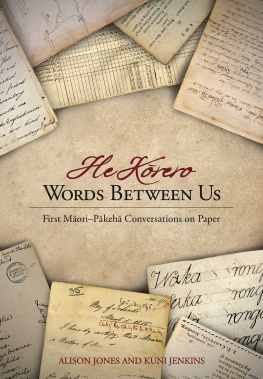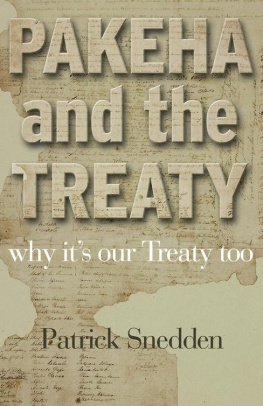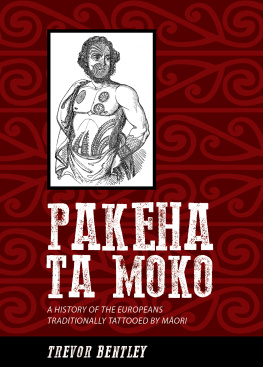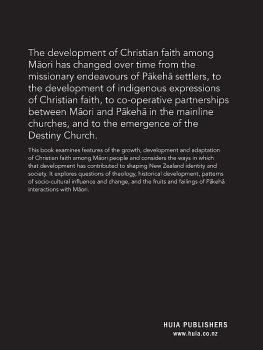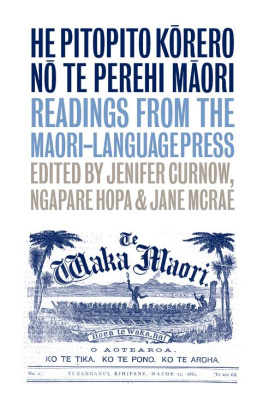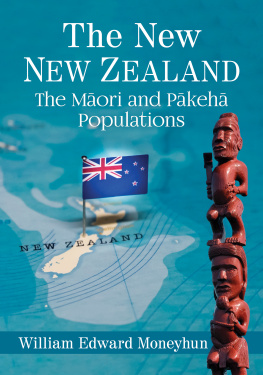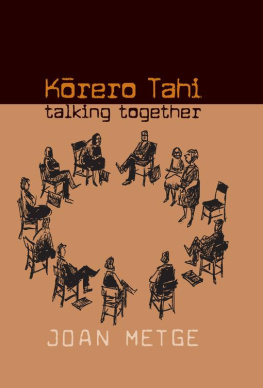Alison Jones - He Korero: Words Between Us: First Maori–Pakeha Conversations on Paper
Here you can read online Alison Jones - He Korero: Words Between Us: First Maori–Pakeha Conversations on Paper full text of the book (entire story) in english for free. Download pdf and epub, get meaning, cover and reviews about this ebook. year: 2011, publisher: Huia (NZ) Ltd, genre: Home and family. Description of the work, (preface) as well as reviews are available. Best literature library LitArk.com created for fans of good reading and offers a wide selection of genres:
Romance novel
Science fiction
Adventure
Detective
Science
History
Home and family
Prose
Art
Politics
Computer
Non-fiction
Religion
Business
Children
Humor
Choose a favorite category and find really read worthwhile books. Enjoy immersion in the world of imagination, feel the emotions of the characters or learn something new for yourself, make an fascinating discovery.
- Book:He Korero: Words Between Us: First Maori–Pakeha Conversations on Paper
- Author:
- Publisher:Huia (NZ) Ltd
- Genre:
- Year:2011
- Rating:4 / 5
- Favourites:Add to favourites
- Your mark:
- 80
- 1
- 2
- 3
- 4
- 5
He Korero: Words Between Us: First Maori–Pakeha Conversations on Paper: summary, description and annotation
We offer to read an annotation, description, summary or preface (depends on what the author of the book "He Korero: Words Between Us: First Maori–Pakeha Conversations on Paper" wrote himself). If you haven't found the necessary information about the book — write in the comments, we will try to find it.
Alison Jones: author's other books
Who wrote He Korero: Words Between Us: First Maori–Pakeha Conversations on Paper? Find out the surname, the name of the author of the book and a list of all author's works by series.
He Korero: Words Between Us: First Maori–Pakeha Conversations on Paper — read online for free the complete book (whole text) full work
Below is the text of the book, divided by pages. System saving the place of the last page read, allows you to conveniently read the book "He Korero: Words Between Us: First Maori–Pakeha Conversations on Paper" online for free, without having to search again every time where you left off. Put a bookmark, and you can go to the page where you finished reading at any time.
Font size:
Interval:
Bookmark:
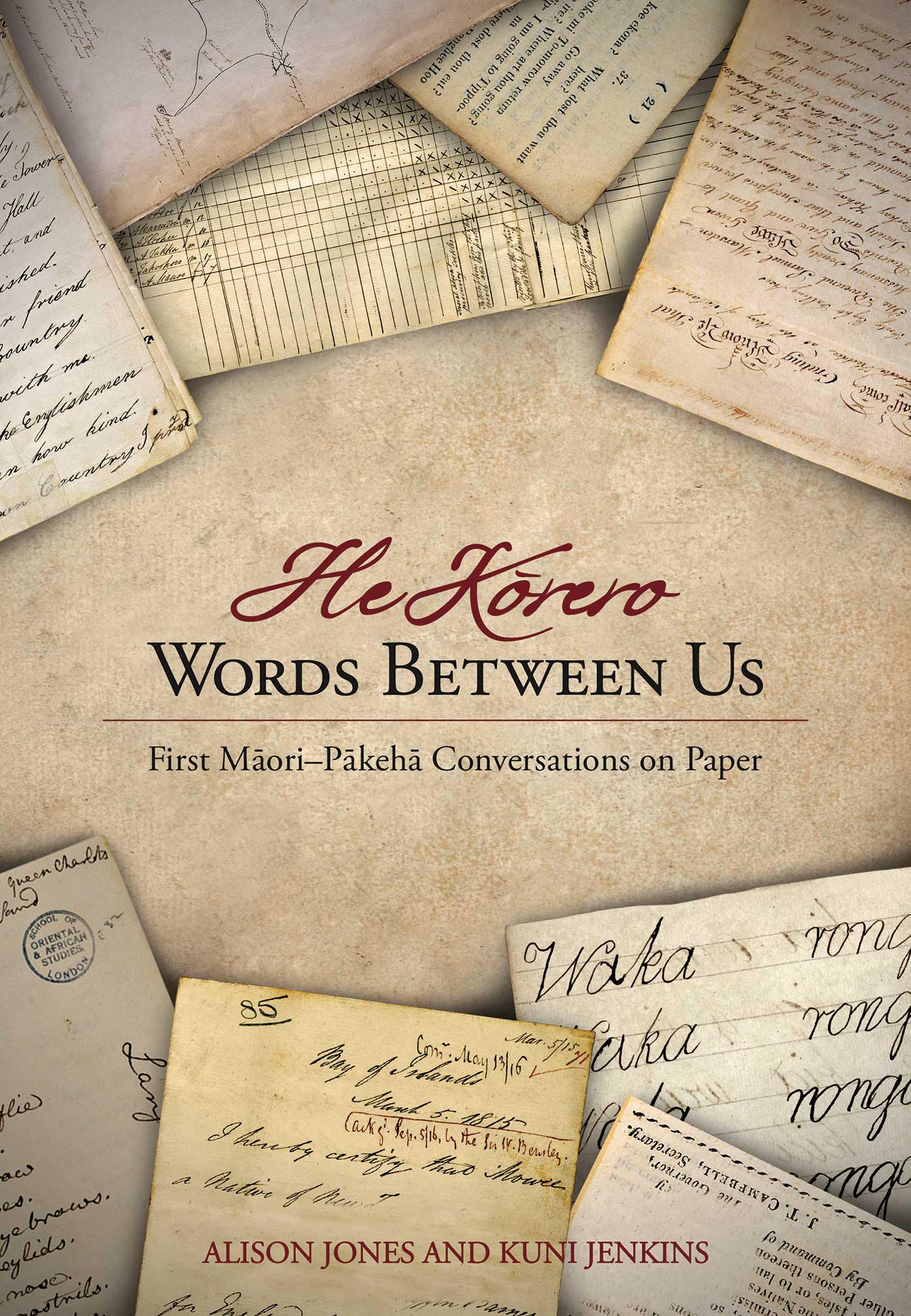

| N wai te waka taki nei? | Who has called for this challenge to the canoes? | |
| N te rangatira | The leader | |
| Ko Ruatara e | Ruatara | |
| Ar te manuhiri kei waho e | Look yonder at sea there are the visitors | |
| Hoea! hoea r! | Row! Row heartily! | |
| Kia kaha r | Put more strength into (the paddling)! | |
| Korokoro m | Korokoro and your crewmen | |
2x | Kia teretere mai ki uta | Glide swiftly to shore |
2x | Kawea mai a Te Mtenga | Bring with you the man Marsden |
2x | Kia ia te waka taki nei | To face the challenge that awaits |
| Au au au h | ||
| Whakaeke mai whakaeke mai | Make your landfall | |
| Kia tpato ki te tangata nei | Beware! Take great care and respect for the chief here | |
| Mana motuhake e | With his powerful customary traditions | |
| Ko Hongi Hika e ngunguru nei | Here stands Hongi Hika the warrior in readiness for battle | |
| Ko te iwi Torehina | Here is the iwi Torehina | |
| Ko te iwi Ngpuhi e karanga nei | Here is the iwi Ngpuhi | |
| Au au au h | ||
TE KARANGA | Whakatau mai r i raro | Draw near to be sheltered under |
| I te tihi o Matak | The mountain ridge of Matak | |
| Whakatau mai r e Ngare | Draw near Ngare Raumati | |
| Raumati | ||
| Ki te P o Rangihoua | To the Rangihoua P | |
| Kawea mai te manuhiri tuarangi | Escorting the esteemed visitor from afar | |
| Huihui mai r ki waenganui | Let us all gather here in the centre | |
| I te rohe o Te Hhi | Of the region of Te Hhi |
Tna koutou katoa ng tngata i tautokohia i tnei rangahau, me tna kaupapa ki te whai take m te kura tuatahi. Tna hoki koutou o Ngti Torehina. N koutou te P Twatawata o Rangihoua i manaakitia te manuhiri o tr atu rautau n te Kirihmete o 1814, a kai reira tonu koutou e hpai tonu ana i te kaupapa o tn kura i tmata mai i to rohe o Te Hhi.
Many people deserve thanks for their support of the project that produced this book and the exhibition of its images. The Marsden Fund of the Royal Society of New Zealand gave a generous grant to support the research and writing; Ng Pae o te Mramatanga at the University of Auckland helped fund the exhibition (Ng Taonga Tuhituhi) of images from this book; the Faculty of Education and Te Puna Wnanga at the University of Auckland kindly tolerated Alisons absences; Te Whare Wnanga o Awanuirangi tolerated Kunis. Librarians at the Hocken Library in Dunedin, the Alexander Turnbull Library in Wellington, the Sir George Grey Special Collections at Auckland City Libraries, the Mitchell Library in Sydney, the University of Auckland library, the Auckland War Memorial Museum library, the Auckland Art Gallery Toi o Tmaki, and the University of Birmingham librarys special collections located, copied and discussed material. We particularly thank Phil Parkinson, Robert Eruera and Jane Davison-Ladd in this regard. Alice van der Merwe, Rose Yukich and Debbie Dunsford assisted with research and editing. Kevin Church at Opticmix made sure the images looked good. Practical Studio Supplies made boxes for the exhibition of images, which were framed by Homestead Picture Framers in Henderson.
We want to acknowledge the many individuals who debated with us, inspired us and supported us at various times during the project, in particular: Nuki Aldridge, Chris Barber, Jamie Belich, Avril Bell, Judith Binney, Peter Calder, Hemi Dale, Rima Edwards, Pamela Gillespie, Camille Guy, Hilda Halkyard Harawira, Erima Henare, Manuka Henare, Patu Hohepa, Rau Hoskins, Te Kawehau Hoskins, Moana Jackson, Alison Lee, Mike Leuluai, Mere Mangu, Liz McKinley, Joan Metge, Sue Middleton, Merimeri Penfold, Anahera Pomare, Ron Poti, Hugh Rihari, Raewyn Rihari, Charles Royal, Anne Salmond, Hone Sadler, Natasha Sadler, Waihoroi Shortland, Judith Simon, Peter Simpson, Linda Smith, Rudy Taylor, Joe Te Rito, Stephen Turner and Pepi Walker.
Te Whare Wnanga o Awanuirangis Council, its community, its staff and its students were attentive and supportive to both Kuni and Alison during the project. Te Wnanga o Aotearoa, through its Manukau Campus in Mangere, showed interest and support. The Organising Committee for the Waitangi Tribunal Hearings for the Te Paparahi o Te Raki (Northland) Inquiry in 2010 supported the final phase of the project by including us on the agenda of hearings. We thank Charl Hirschfeld, Tavake Afeaki, Nora Rameka, Erima Henare and Tahei Simpson for their work with us. Mori Anglican clergy have given us opportunities to work with their various Haahi hui, and so we thank Bishop Rt Rev. Ben Te Haara, Bishop Rt Rev. Te Kitohi Pikaahu, Archdeacon Hone Kaa and Rev. Lloyd Popata.
Alison thanks her whnau, Peter Calder, Finn McCahon-Jones, Frey McCahon-Jones, Emma Blomeley, Max Calder-Watson, Janet Calder-Watson and Sophie Jones for their encouragement and their interest in the project. In particular, many thanks to Peter Calder for his writing advice, and his unstinting support and love. Kuni thanks her whnau, Heeni Jenkins, Ahi Pere, Hineatauira and Dion Wilkinson, and Maharata Pere, who have followed the work in all of its phases.
Last but not least, we thank each other. Neither of us could have done this work alone.
Library archives are strangely exciting places. They sit there, quiet stacks of books and old paper, silently humming with thousands of stories. Closed to random rummagers, guarded by librarians, the past seems to wait for someone to reach out to it. To open a box or a book on a page of old handwriting, with its browning ink on yellowing paper, requires a steady nerve. Having been discovered, the ancestors demand attention. We cannot simply close the box and leave them alone again.
We entered the archives to find out about Mori interest in the first school in New Zealand. As university teachers, we often encounter a vague assumption amongst our students that Mori simply turned up at schools built by missionaries, came across their own written language created by Europeans, and were encouraged by Europeans with a civilising mission to learn to read and write. We knew there must be more to it. So we went to look at some 1826 writing exercises by Mori boys who had attended one of New Zealands first schools. The smell of old paper, the quiet of the archive librarys reading room, the solitary intensity of the people working at desks all accompanied our meeting with some schoolboys from the distant past, when written Mori words were a relatively new invention.
The librarian at the Sir George Grey Special Collections in the Auckland City Library retrieved a cardboard folder for us. Inside were some small stitched booklets. The top booklet looked rather grubby, with a foxed cover and fragile crumpled edges (). On the front, in the top right corner were archeological accretions: at least five cataloguing annotations by librarians made over a number of years by pencil, pen and inked stamp. In the centre, in schoolboy copperplate, we read:
Font size:
Interval:
Bookmark:
Similar books «He Korero: Words Between Us: First Maori–Pakeha Conversations on Paper»
Look at similar books to He Korero: Words Between Us: First Maori–Pakeha Conversations on Paper. We have selected literature similar in name and meaning in the hope of providing readers with more options to find new, interesting, not yet read works.
Discussion, reviews of the book He Korero: Words Between Us: First Maori–Pakeha Conversations on Paper and just readers' own opinions. Leave your comments, write what you think about the work, its meaning or the main characters. Specify what exactly you liked and what you didn't like, and why you think so.

